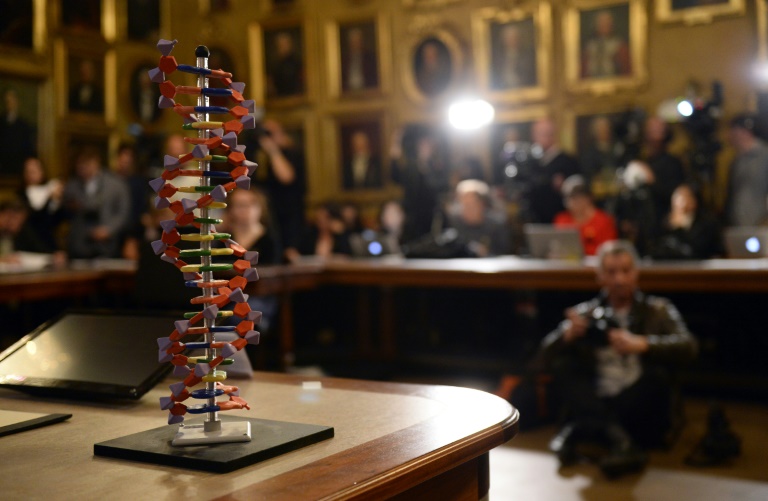-
Tips for becoming a good boxer - November 6, 2020
-
7 expert tips for making your hens night a memorable one - November 6, 2020
-
5 reasons to host your Christmas party on a cruise boat - November 6, 2020
-
What to do when you’re charged with a crime - November 6, 2020
-
Should you get one or multiple dogs? Here’s all you need to know - November 3, 2020
-
A Guide: How to Build Your Very Own Magic Mirror - February 14, 2019
-
Our Top Inspirational Baseball Stars - November 24, 2018
-
Five Tech Tools That Will Help You Turn Your Blog into a Business - November 24, 2018
-
How to Indulge on Vacation without Expanding Your Waist - November 9, 2018
-
5 Strategies for Businesses to Appeal to Today’s Increasingly Mobile-Crazed Customers - November 9, 2018
Finally Chemistry Nobel Prize Winners for 2015 Announced
Sweden’s Tomas Lindahl, Paul Modrich of the United States and Aziz Sancar, a Turkish-American, were awarded the top chemistry award for unravelling the process by which our cells repair mutations caused to DNA by the Sun or carcinogenic substances found in alcohol and cigarettes, for example. Sancar is the second Turk to win a Nobel Prize after novelist Orhan Pamuk was awarded the literature prize in 2006.
Advertisement
Modrich has been a Duke faculty member since 1976 and has studied the molecular machinery of DNA for most of his career, prompting Richard Brennan, James B. Duke professor of biochemistry and chair of the biochemistry department, to describe him as “a homegrown Duke biochemist”.
Dr. Stephen Spiro, professor and head of the Department of Biological Sciences at the University, said Sancar’s work at UT Dallas laid the foundation for his later studies of DNA repair in humans, and his discovery of cryptochrome, the photoreceptor that sets the biological clock according to the day/night cycle.
Sancar is a professor at the University of North Carolina School of Medicine in Chapel Hill, North Carolina.
The Royal Swedish Academy of Sciences said their work “has provided fundamental knowledge of how a living cell functions”. It also has real-world implications for areas such as cancer research, given that cancer cells themselves rely on DNA repair mechanisms to survive.
Tomas Lindahl, Paul Modrich and Aziz Sancar won the prize for “mechanistic studies of DNA repair”.
In this file photo from 1975, Aziz Sancar works in the lab of the UT Dallas Biology Department 40 years before he won the Nobel Prize..
The economics prize on Monday will wrap up this year’s Nobel season.
Thousands of changes in the genome of a cell happen daily because of damage and alterations by carcinogens, radiation, and free radicals, but DNA remains unchanged. The cells in your body divide several million times a day, and every time a cell divides, it makes a copy of the DNA stored in its nucleus, which will provide genetic instructions for the new cell.
He says it also highlights “the fact that loss of DNA repair results in many different diseases, including cancer and aging”.
To keep genetic materials from disintegrating, a range of molecular systems monitor and repair DNA, in processes that the three award-winning scientists helped map out.
But back in the early 1970s, scientists believed that DNA was an extremely stable molecule, Lindahl demonstrated that DNA decays at a rate that ought to have made the development of life on Earth impossible.
Sancar, meanwhile, worked out how cells repair ultra-violet damage and Modrich uncovered the mechanism for correcting errors during cell division.
Ironically, the same repair mechanism identified by the Nobel laureates can also cause cancerous cell to resist the effects of cancer treatment.
Why it’s important: This pretty much goes without saying, but the drugs that Campbell, Ōmura, and Tu have developed are powerful new tools that humanity can use to combat diseases that affect hundreds of millions of people annually. This mechanism, mismatch repair, reduces the error frequency during DNA replication by about a thousandfold, according to the statement.
“Mismatch repair defects are found not only in hereditary colorectal cancers”.
Advertisement
Chemistry was the third of this year’s Nobel prizes.




























